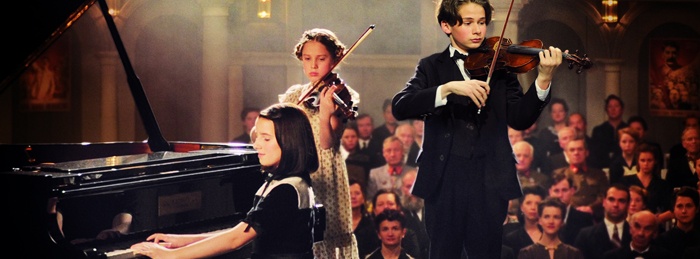Review: Wunderkinder
Wunderkinder (German for ‘child prodigy’) is a fictional tale of childhood friendship put to the test by the cruelty of an adult world bent on destruction. Set in the Ukraine of the early 1940s, Hanna (Mathilda Adamik) a young German girl, befriends two Russian Jews – gifted child-violinist, Abrascha (Elin Kolev), and his piano-playing friend, […]

Wunderkinder (German for ‘child prodigy’) is a fictional tale of childhood friendship put to the test by the cruelty of an adult world bent on destruction. Set in the Ukraine of the early 1940s, Hanna (Mathilda Adamik) a young German girl, befriends two Russian Jews – gifted child-violinist, Abrascha (Elin Kolev), and his piano-playing friend, Larissa (Imogen Burrell). First the Bolsheviks hunt down the Germans, and Hanna and her family must hide and protect their foreign friends. Then Germany invades, the tables turn, and the Germans shield their Jewish friends from Nazi deportation to the death camps.
Be the oppressors Stalin’s Communists or Hitler’s Fascists, as one of the adults explains: “Political struggle devours people. Individual struggle is all that’s left.” This then is a morality tale writ-large against the backdrop of European turmoil. The acting from the three young leads is first-rate, but honours go to Konstantin Wecker, who turns in the most malevolent study in cultured-evil-with-a-demonic-smile since Ralph Fiennes in Schindler’s List.
Ably directed by Marcus Rosenmüller, Wunderkinder is a German film that tackles German history head-on. Although some may find it initially distracting that everyone, including the Russians, speaks in German, Wunderkinder is powerful drama. By retaining throughout the point of view of its three child protagonists, it is able to offer warmth, heart and humour in offering an answer as to why our world is so often blighted by war, horror and hate. Why? Well, as one of the children so succinctly puts it: “Because adults are just stupid.”





















